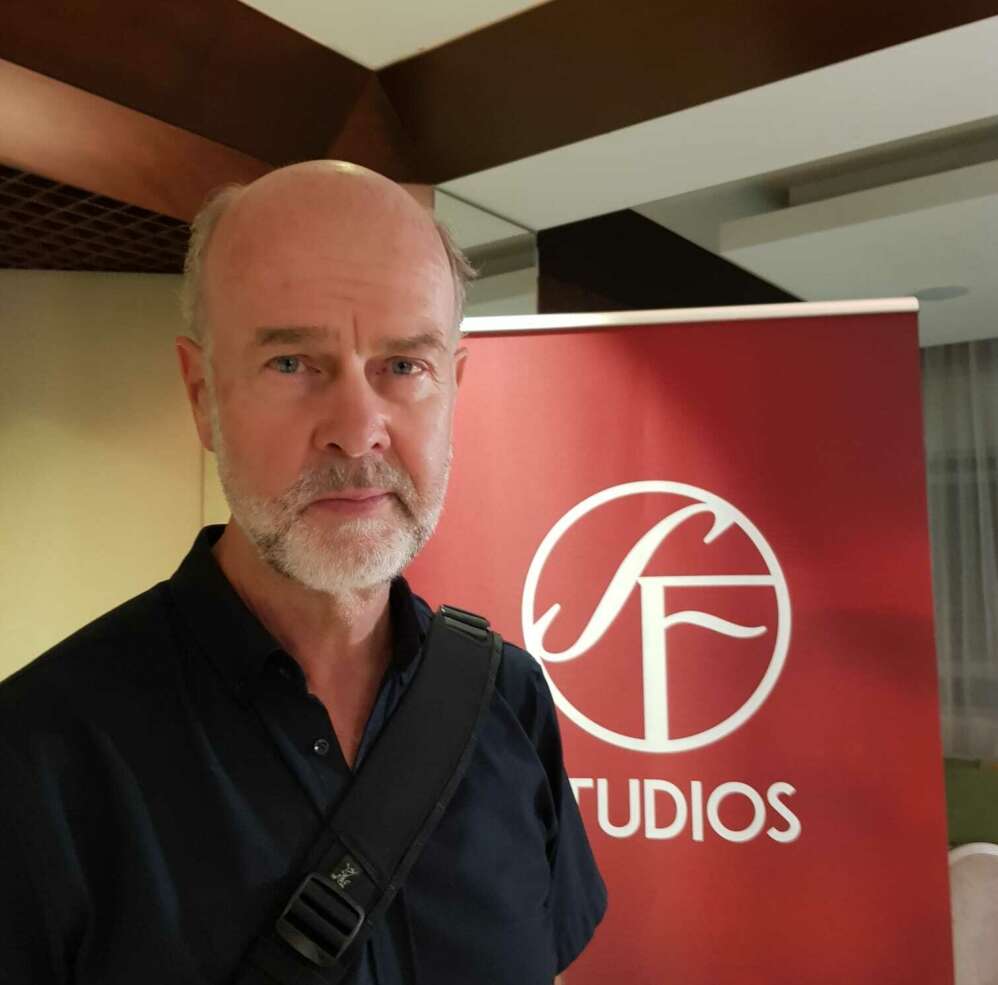WRITTEN BY: Annika Pham
Speaking in Cannes about his upcoming feature Quisling, the Norwegian director said the film will try to depict what goes on in the dangerous mind of a totalitarian leader.

Speaking in Cannes about his upcoming feature Quisling, the Norwegian director said the film will try to depict what goes on in the dangerous mind of a totalitarian leader.
Invited at an SF Studios press conference in Cannes, Norway’s top director Erik Poppe unveiled details about his upcoming feature drama Quisling, his fourth feature about the frailty of democracy after A Thousand Times Good Night, The King’s Choice and Utøya, July 22.
It will be the first biopic about the infamous former Norwegian head of state, Nazi collaborator and traitor Vidkun Quisling. The story will focus on his final hours, as he sits in his cell at Akerhus Fortress and must be held accountable for his actions and crimes committed in the name of Nazi ideology.
Drawing parallels between the themes in his upcoming film and the current Russian leadership, Poppe said in Cannes: “The world is more polarised than ever, more countries are challenged by anti-democratic leaders. But who are these people, what goes on in their head? Now we’re following a man in Russia [waging war] - how far can he go?” asks Poppe.
Digging further into his reflection on the threat to democracy, the director said there are two types of anti-democratic leaders. One who is power-driven, greedy, corrupt and easy to spot. The second one - and a category to which Quisling belongs - “is more complex, often a man driven by a strong ideology, which makes him more dangerous, harder to understand and to fight”, said the director who felt “the opportunity to dig deeper into Quisling’s head was more tempting than ever”. “Can such men show remorse?” asks Poppe.
Written with his co-writers of Utøya July 22 and The Emigrants Siv Rahendram Eliassen and Anna Bache-Wiig, the story will unfold from May 8 1945, when Norwegians celebrate the end of WW2, to Quisling’s arrest and execution October 24, 1945. The tense psychological drama will focus in particular on Quisling’s regular meetings in his cell with a priest. “It’s as if all of a sudden you would be stuck in an elevator with Putin - where would you start? How can a meeting like this look like”, said Poppe.
Speaking to nordicfilmandtvnews.com, the director explained that key to the story and basis for the narrative was the discovery of a diary from the priest, handed to him by the priest’s son, as part of the research process. “I presented it [the diary] to historians to check its authenticity and they confirmed it was very valid material,” said the director.
“In the diary, Quisling exposes his thoughts, fears, and we see how to the very end he sticks to his ideology.”
Asked how he believes Norwegians will react to the biopic about the notorious traitor Quisling, Poppe said: “Of course it will provoke some people, but I will allow [in the film] Quisling to share his ideology and there is no way around it if you want to understand him and our threats to democracy.”
Poppe said casting for the title roles is underway with “some of Scandinavia’s most prolific and finest actors”, with names to be announced just prior to principal photography between Norway and Sweden, set for September.